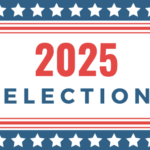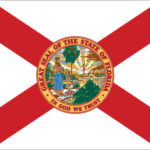In Focus This Week
Innovative Election Administration Funding Solutions
Contest features cash prize and opportunity to present at fall symposium
Mitchell Brown, PhD, director, Institute for Election Administration Research & Practice, Auburn University and
Kathleen Hale, JD, PhD, executive director, Election Center
The Institute for Election Administration Research & Practice, a collaboration of Auburn University and the Election Center, are excited to announce the Call for Innovative Election  Administration Funding Solutions, a competition seeking groundbreaking, practical solutions to address the critical issue of adequate funding of election administration across local, state, and/or federal levels in the United States.
Administration Funding Solutions, a competition seeking groundbreaking, practical solutions to address the critical issue of adequate funding of election administration across local, state, and/or federal levels in the United States.
This challenge is designed to encourage creative thinking and collaboration in developing new approaches to election funding. Entries should focus on election administration and how we fund local, state, or federal elections, or any combination thereof. The contest seeks proposals with solutions that can help sustain funding of election administration while promoting participation among eligible voters, accessibility, and election integrity while acknowledging the increasing complexity of administering U.S. elections and demands on election offices.
We welcome proposals that present novel ideas for how to fund local and state government generally so long as the connection to how election administration is funded is clear in the proposal. We prefer proposals that are widely applicable, model solutions that can be adapted to various state and local contexts but will accept proposals focused on particular state models or solutions (e.g., mail ballot states, states with vote centers, etc.).
The challenge is open to all individuals or teams from various backgrounds, from election administrators and officials, policy makers, think tanks, and academics and students from related disciplines, including but not limited to law, public administration, public finance, political science, economics, business, technology, and so on.
Up to two team members from the top 10 proposals will have travel paid to present their ideas at our October 26-28 symposium on the Auburn University campus. The top five winners will receive cash prizes which will be announced at the symposium. Cash prizes will include:
5th $1,000
4th $1,500
3rd $5,000
2nd $7,500
1st $10,000
Submissions will be judged on originality, feasibility, impact, scalability, and alignment with the principles of democratic access, integrity and transparency. A team of national experts in public finance and election administration practice, policy, and research will review and score the proposals. Review of proposals will be single-blinded (i.e., reviewers will not know the identity of the proposers).
The symposium is co-hosted each October in odd years by Auburn University and the Election Center. Begun in 2015, it is designed to bring election officials, researchers, policy makers, vendors, and representatives of other interested groups together to discuss issues of significant importance to election administration. Registration for this year’s symposium will open in August.
Proposals must be submitted by August 1st, 2025. For more information, including full competition rules and guidelines, visit https://www.au-elections.com/symposia. For other inquiries, email election@auburn.edu.
electionline Daily News Email
 What’s the best part of waking up? electionline Daily News in your inbox of course so be sure to sign up for your daily dose.
What’s the best part of waking up? electionline Daily News in your inbox of course so be sure to sign up for your daily dose.
Each morning you’ll receive the top headlines of the day, plus a listing of states featured in that day’s news round up.
To sign up, simply visit our site and provide us with your email and you’ll begin receiving the news in your inbox each morning.
We Google so you don’t have to!
Election News This Week
 Federal Updates: In news from Washington, DC this week, the Justice Department unit that ensures compliance with voting rights laws will switch its focus to investigating voter fraud and ensuring elections are not marred by “suspicion,” according to an internal memo obtained by The Associated Press. The new mission statement for the voting section makes a passing reference to the historic Voting Rights Act, but no mention of typical enforcement of the provision through protecting people’s right to cast ballots or ensuring that lines for legislative maps do not divide voters by race. Instead, it redefines the unit’s mission around conspiracy theories. In his proposed budget, President Donald J. Trump proposes shuttering the disinformation offices and programs at the Cybersecurity and Infrastructure Security Agency (CISA), alleging in the budget request that they contributed to the censorship of the president and his supporters. The budget proposal claimed CISA’s disinformation offices and programs “functioned as a hub in the Censorship Industrial Complex.” The proposal calls for slashing the agency’s budget by about $491 million. This would be a nearly 16 percent reduction in funding from what the agency received last year. It currently has a budget of about $3 billion. “Under President Trump’s leadership, CISA will protect our critical infrastructure instead of censoring Americans,” the fact sheet stated. “The Budget refocuses CISA on its core mission—Federal network defense and coordinating with critical infrastructure partners—while eliminating weaponization and waste.”
Federal Updates: In news from Washington, DC this week, the Justice Department unit that ensures compliance with voting rights laws will switch its focus to investigating voter fraud and ensuring elections are not marred by “suspicion,” according to an internal memo obtained by The Associated Press. The new mission statement for the voting section makes a passing reference to the historic Voting Rights Act, but no mention of typical enforcement of the provision through protecting people’s right to cast ballots or ensuring that lines for legislative maps do not divide voters by race. Instead, it redefines the unit’s mission around conspiracy theories. In his proposed budget, President Donald J. Trump proposes shuttering the disinformation offices and programs at the Cybersecurity and Infrastructure Security Agency (CISA), alleging in the budget request that they contributed to the censorship of the president and his supporters. The budget proposal claimed CISA’s disinformation offices and programs “functioned as a hub in the Censorship Industrial Complex.” The proposal calls for slashing the agency’s budget by about $491 million. This would be a nearly 16 percent reduction in funding from what the agency received last year. It currently has a budget of about $3 billion. “Under President Trump’s leadership, CISA will protect our critical infrastructure instead of censoring Americans,” the fact sheet stated. “The Budget refocuses CISA on its core mission—Federal network defense and coordinating with critical infrastructure partners—while eliminating weaponization and waste.”
 Elections 2025: Several states held elections this week including Ohio and Texas and it was relatively smooth sailing in most polling places. In Ohio, there had been concerns about how moving back to paper check-in rolls may slow down the process on Election Day, but none of those fears seemed to materialize. A power outage at one Richland County, Ohio polling place didn’t prevent it from opening on time and voting to proceed throughout the day. In Trumbull County, Ohio Board of Elections Director Stephanie Penrose says poll workers in one precinct made a mistake by providing some voters with only one ballot when they should have gotten two, one for local races and one for ballot issues. “Some people who requested Democratic ballots in the city of Warren were given an issues-only ballot instead of the proper Democratic ballot,” Penrose said. “In an election this slow, I’m hoping it was very few people. I can’t go back and change it. All I can say is it has been rectified — everybody is getting the ballot they want.” Dallas County, Texas rolled out their new voting system during the May 3 local elections and the system performed with few, if any problems. Bexar County, Texas rolled out a new process for collecting and reporting results on May 3 and it was met with frustrations. The new system requires poll workers to deliver poll results on thumb drives to a central location, rather than multiple sites across the county as done previously. Bruce Glinski, an Alternate Election Judge described the scene, saying, “Everyone that’s in this line has been working for 15 hours today, and we’re not done yet. It’s just ridiculous, poor planning, bad decision. As for myself, I don’t think I’m ever gonna do this again.” Despite the congestion, staff from the elections department claimed this was the fastest result turnout in 18 years.
Elections 2025: Several states held elections this week including Ohio and Texas and it was relatively smooth sailing in most polling places. In Ohio, there had been concerns about how moving back to paper check-in rolls may slow down the process on Election Day, but none of those fears seemed to materialize. A power outage at one Richland County, Ohio polling place didn’t prevent it from opening on time and voting to proceed throughout the day. In Trumbull County, Ohio Board of Elections Director Stephanie Penrose says poll workers in one precinct made a mistake by providing some voters with only one ballot when they should have gotten two, one for local races and one for ballot issues. “Some people who requested Democratic ballots in the city of Warren were given an issues-only ballot instead of the proper Democratic ballot,” Penrose said. “In an election this slow, I’m hoping it was very few people. I can’t go back and change it. All I can say is it has been rectified — everybody is getting the ballot they want.” Dallas County, Texas rolled out their new voting system during the May 3 local elections and the system performed with few, if any problems. Bexar County, Texas rolled out a new process for collecting and reporting results on May 3 and it was met with frustrations. The new system requires poll workers to deliver poll results on thumb drives to a central location, rather than multiple sites across the county as done previously. Bruce Glinski, an Alternate Election Judge described the scene, saying, “Everyone that’s in this line has been working for 15 hours today, and we’re not done yet. It’s just ridiculous, poor planning, bad decision. As for myself, I don’t think I’m ever gonna do this again.” Despite the congestion, staff from the elections department claimed this was the fastest result turnout in 18 years.

Democracy Sausage team on IG
Democracy Sausage: Governance is often referred to as making the sausage and in Australia, enjoying a “democracy sausage” at the polls on Election Day is akin to showing off your “I Voted” sticker in America. According to The Washington Post, a grilled sausage wrapped in a slice of white bread and often topped with onions and ketchup is a regular fixture of life Down Under, but when offered at polling places on election day , the humble treat is elevated to a democracy sausage — a national, if light-heated, symbol for electoral participation. There is even a website that tracks real-time, crowd-sourced democracy sausage locations on polling day. According to The Post, the tradition is far from political. Cooking and selling the snacks outside polling places is the most lucrative fundraising event of the year for many school and community groups. Democracy sausages are served everywhere Australians vote, even abroad. The friends who run the apolitical and nonpartisan website democracysausage.org began the project in 2013, when they struggled to find information about which polling places would offer food on election day, a spokesperson told The Associated Press. Judith Brett, a professor of politics at Melbourne’s LaTrobe University and author of the book “From Secret Ballot to Democracy Sausage: How Australia Got Compulsory Voting,” attributed the sausage’s appeal to the Australian sense of humor — “It was a bit of a joke,” she said — and its grassroots origins. “Government didn’t think it up, a political party didn’t think it up as a slogan,” she added. “It’s something that binds everyone together,” Dawson said.
 Purposeful Warrior: This week, Michigan Secretary of State Jocelyn Benson released a memoir entitled “The Purposeful Warrior”. Michigan Advance Editor Jon King spoke with Benson about the memoir, how her experiences – including writing “the book on secretaries of state” and becoming the youngest woman ever to lead a U.S. law school – led her to become Michigan’s top elections officer, as well as her campaign to become governor.
Purposeful Warrior: This week, Michigan Secretary of State Jocelyn Benson released a memoir entitled “The Purposeful Warrior”. Michigan Advance Editor Jon King spoke with Benson about the memoir, how her experiences – including writing “the book on secretaries of state” and becoming the youngest woman ever to lead a U.S. law school – led her to become Michigan’s top elections officer, as well as her campaign to become governor.
Personnel News: Francis X. DeLuca, Robert Rucho and Stacy “Four” Eggers IV have been appointed to the North Carolina State Board of Elections. Their first order of business was to replace long-time Board of Elections Executive Director Karen Brinson Bell with Sam Hayes, general counsel to House Speaker Destin Hall. Rebecca Battle-Bryant announced her resignation from the Clarendon County, South Carolina elections board. Indiana Secretary of State Diego Morales has announced his reelection campaign. Palatine Village, Illinois Clerk Marg Duer has retired after 36 years on the job. Knox County Clerk, David Shelton has officially announced that he is seeking the Republican nomination for Indiana State of Secretary in 2026.
Ballot Measures, Legislation & Rulemaking
 Florida: Gov. Ron DeSantis has signed into law a bill to make it more difficult for citizens to get constitutional amendments on the ballot, like ones in recent years that raised the minimum wage to $15 and allowed for the use of medical marijuana. The Legislature passed the measure (HB 1205) May 2 and the governor signed it later that same day. The House and Senate earlier had been at odds over at what point a signature collector would have to register with the state as a “petition circulator” and take a two-hour online training course. The measure bounced between the chambers the last three days of the session before the House boosted the threshold to 25 signatures on May 1. The next day, the session’s final day, the Senate agreed with a 28–9 vote. The Legislature responded to DeSantis’ call to reform the process with a measure that requires groups sponsoring ballot initiatives to put up a $1 million bond, as well as shortens the time for submitting signatures and increases financial penalties for violations. But it also prohibits spending “public funds for a political advertisement or any other communication” to support or oppose a proposed amendment. “This bill is not an attack on the citizens’ initiative process. But it is an attack on those who have corrupted it,” Sen. Don Gaetz, R-Niceville, said in an April 30 debate.
Florida: Gov. Ron DeSantis has signed into law a bill to make it more difficult for citizens to get constitutional amendments on the ballot, like ones in recent years that raised the minimum wage to $15 and allowed for the use of medical marijuana. The Legislature passed the measure (HB 1205) May 2 and the governor signed it later that same day. The House and Senate earlier had been at odds over at what point a signature collector would have to register with the state as a “petition circulator” and take a two-hour online training course. The measure bounced between the chambers the last three days of the session before the House boosted the threshold to 25 signatures on May 1. The next day, the session’s final day, the Senate agreed with a 28–9 vote. The Legislature responded to DeSantis’ call to reform the process with a measure that requires groups sponsoring ballot initiatives to put up a $1 million bond, as well as shortens the time for submitting signatures and increases financial penalties for violations. But it also prohibits spending “public funds for a political advertisement or any other communication” to support or oppose a proposed amendment. “This bill is not an attack on the citizens’ initiative process. But it is an attack on those who have corrupted it,” Sen. Don Gaetz, R-Niceville, said in an April 30 debate.
 Maine: Rep. Poppy Arford (D-Brunswick) introduced LD 1743 that would allow municipalities to adopt an order, ordinance, policy or regulation that limits or prohibits firearms within its buildings and voting places and at public proceedings. The municipalities would be required to post the rule in a prominent location outside of all buildings. Though local and state government proceedings can be contentious, Arford said people shouldn’t be deterred from engaging in those meetings or voting out of fear of someone bringing a firearm. Secretary of State Shenna Bellows, who is also running for governor next year, said towns should have the option to regulate firearms in polling places because there is often anxiety over threats to election workers that data collected by her office shows persist. “This may not be right for every municipality, but for some, it could be the right option, and we believe they should have the option,” she said, speaking in favor of the bill. Bellows was asked if she was concerned over this proposal restricting one right for the sake of exercising another. She said this didn’t concern her, comparing it to the First Amendment limitations that already exist at polling places so as to not influence other voters. Opponents argued that people intent on committing crimes aren’t deterred by gun-free zones.
Maine: Rep. Poppy Arford (D-Brunswick) introduced LD 1743 that would allow municipalities to adopt an order, ordinance, policy or regulation that limits or prohibits firearms within its buildings and voting places and at public proceedings. The municipalities would be required to post the rule in a prominent location outside of all buildings. Though local and state government proceedings can be contentious, Arford said people shouldn’t be deterred from engaging in those meetings or voting out of fear of someone bringing a firearm. Secretary of State Shenna Bellows, who is also running for governor next year, said towns should have the option to regulate firearms in polling places because there is often anxiety over threats to election workers that data collected by her office shows persist. “This may not be right for every municipality, but for some, it could be the right option, and we believe they should have the option,” she said, speaking in favor of the bill. Bellows was asked if she was concerned over this proposal restricting one right for the sake of exercising another. She said this didn’t concern her, comparing it to the First Amendment limitations that already exist at polling places so as to not influence other voters. Opponents argued that people intent on committing crimes aren’t deterred by gun-free zones.
Last week, lawmakers heard public testimony on three separate bills that would require voters to present photo identification before casting a ballot. Sen. Jeff Timberlake, R-Androscoggin, is sponsoring one of the bills. Timberlake’s bill would require the Secretary of State’s Office to provide free photo IDs to voters who need them. While all three bills focus on requiring photo ID, one, L.D. 1149, also includes changes to absentee voting. It would ban voters from requesting absentee ballots over the phone and limit each municipality to a single ballot drop box. The secretary of state’s office says a voter ID requirement would cost about $1 million for equipment and to create a process to check IDs. Maine voters will also get to weigh in on this issue in November, after a citizen’s petition got a voter ID question on the ballot.
 Michigan: The Michigan Election Security Act, or MESA, is made up of three bills. They are the first of several in what will be a larger package of election proposals known as the Security, Accountability, and Nonintervention in Elections plan, or SANE, said Rep. Stephen Wooden, a Democrat from Grand Rapids. The first, HB 4461 would create new obligations for the secretary of state to help keep the voter rolls free of noncitizens. It would require the secretary to verify the citizenship of any registered voter who “during a transaction with the secretary of state” provides documentation suggesting they aren’t a citizen. The state would have to check the person against state vehicle databases or “any other relevant program.” If that person is found not to be a citizen, the secretary of state would have to notify that person that their voter registration will be canceled within 60 days unless they provide proof of citizenship. The second bill, HB 4462, comes from Rep. Matt Koleszar of Plymouth. It would allow the secretary of state to remove someone from the voter rolls after they haven’t voted in 20 years. Benson has been working on a similar effort, but it is not a codified requirement. HB 4463, from Rep. Mai Xiong of Warren, would require the secretary of state to review the instructions on voter registration forms every even-numbered year. The form would have to clearly state that U.S. citizenship is required to register.
Michigan: The Michigan Election Security Act, or MESA, is made up of three bills. They are the first of several in what will be a larger package of election proposals known as the Security, Accountability, and Nonintervention in Elections plan, or SANE, said Rep. Stephen Wooden, a Democrat from Grand Rapids. The first, HB 4461 would create new obligations for the secretary of state to help keep the voter rolls free of noncitizens. It would require the secretary to verify the citizenship of any registered voter who “during a transaction with the secretary of state” provides documentation suggesting they aren’t a citizen. The state would have to check the person against state vehicle databases or “any other relevant program.” If that person is found not to be a citizen, the secretary of state would have to notify that person that their voter registration will be canceled within 60 days unless they provide proof of citizenship. The second bill, HB 4462, comes from Rep. Matt Koleszar of Plymouth. It would allow the secretary of state to remove someone from the voter rolls after they haven’t voted in 20 years. Benson has been working on a similar effort, but it is not a codified requirement. HB 4463, from Rep. Mai Xiong of Warren, would require the secretary of state to review the instructions on voter registration forms every even-numbered year. The form would have to clearly state that U.S. citizenship is required to register.
An attempt to get a proof-of-citizenship requirement for would-be voters onto the 2026 ballot failed along party lines May 1 in the House — a blow to the GOP-backed effort, but likely not the final word according to Votebeat. The measure would require new Michigan voters — and almost certainly some current ones — to provide documents proving they are U.S. citizens before they can cast a ballot in the state. The measure’s sponsor, state Rep. Bryan Posthumus, a Republican from Rockford, said the resolution “is a common-sense way to close a massive loophole in our current system.” The vote on House Joint Resolution B needed two-thirds approval, or at least 74 votes, to pass the House. Republicans control the state House, but only narrowly, and at least 16 Democrats would have needed to vote yes. In the end, none did. If the vote had succeeded, the measure would have gone next to the Democratic-controlled Michigan Senate, where it faced steep odds.
 Minnesota: A proposal advancing in the Legislature includes changes to clarify the absentee ballot process after officials in Shakopee last fall accidentally threw ballots in a close race in the trash, prompting a court case challenging the results. DFL Rep. Brad Tabke won his district by 14 votes but there were 20 missing absentee ballots from one precinct, which sparked controversy. An investigation by Scott County determined the ballots were never processed and were likely thrown away in their secrecy envelopes — one of two envelopes voters sign during the absentee voting process. The proposal, brought forward initially by Tabke and included in a larger bill, adds clarifying steps to the absentee ballot process and requires elections officials to document any discrepancy while counting the ballots in the incident logs they already are putting together as part of their job. The absentee ballot boards, which review the ballots and count them, also must keep all ballot envelopes until after the period during which voters and candidates can challenge election results is over. House on Thursday approved the provisions in a bipartisan state government and elections package. Michael Stalberger, an elections administrator in Blue Earth County who is a member of the Minnesota Association of County Officers, said during a March committee hearing that for the most part, elections officials are already implementing the proposed changes, but putting them in statute adds a layer of transparency. He called retention of all envelopes a “fail safe.”
Minnesota: A proposal advancing in the Legislature includes changes to clarify the absentee ballot process after officials in Shakopee last fall accidentally threw ballots in a close race in the trash, prompting a court case challenging the results. DFL Rep. Brad Tabke won his district by 14 votes but there were 20 missing absentee ballots from one precinct, which sparked controversy. An investigation by Scott County determined the ballots were never processed and were likely thrown away in their secrecy envelopes — one of two envelopes voters sign during the absentee voting process. The proposal, brought forward initially by Tabke and included in a larger bill, adds clarifying steps to the absentee ballot process and requires elections officials to document any discrepancy while counting the ballots in the incident logs they already are putting together as part of their job. The absentee ballot boards, which review the ballots and count them, also must keep all ballot envelopes until after the period during which voters and candidates can challenge election results is over. House on Thursday approved the provisions in a bipartisan state government and elections package. Michael Stalberger, an elections administrator in Blue Earth County who is a member of the Minnesota Association of County Officers, said during a March committee hearing that for the most part, elections officials are already implementing the proposed changes, but putting them in statute adds a layer of transparency. He called retention of all envelopes a “fail safe.”
 Montana: Montana voters will need to adapt to changes in the state registration system following the signing of Senate Bill 276 by Governor Greg Gianforte. The bill, sponsored by Mike Cuffe, revises voter identification laws to now require a form of photo ID for registration. The forms of valid identification that can be used include a Montana driver’s license, military ID card, tribal photo ID card, U.S. passport, and student photo ID from a university, among others. Previously, voters could not use non-photo ID options such as a piece of mail or by filling out a form to vote. “Photo ID to vote is a common sense, nonpartisan best practice that will facilitate smoother operations for election officials, enhance the voting experience for Montanans casting their ballots.” said Secretary of State Christy Jacobson.
Montana: Montana voters will need to adapt to changes in the state registration system following the signing of Senate Bill 276 by Governor Greg Gianforte. The bill, sponsored by Mike Cuffe, revises voter identification laws to now require a form of photo ID for registration. The forms of valid identification that can be used include a Montana driver’s license, military ID card, tribal photo ID card, U.S. passport, and student photo ID from a university, among others. Previously, voters could not use non-photo ID options such as a piece of mail or by filling out a form to vote. “Photo ID to vote is a common sense, nonpartisan best practice that will facilitate smoother operations for election officials, enhance the voting experience for Montanans casting their ballots.” said Secretary of State Christy Jacobson.
 Nebraska: Lincoln and Omaha city officials would have the future option to move city elections and line them up with Nebraska statewide elections, under this year’s annual election cleanup bill. Legislative Bill 521, from State Sen. Rita Sanders of Bellevue, advanced 42-0 on Thursday. Sanders, who chairs the Legislature’s Government, Military and Veterans Affairs Committee, said the goal is “modernizing” elections. LB 521 would make a series of changes, including to allow hospice or disability services patient records to count as a photo voter ID, stop petition signature verification of candidates or new political parties at 110% of the goal (similar to ballot measures), notify a voter if their voter registration is canceled, prohibit petition circulation within 200 feet of ballot drop boxes and permit the secretary of state to distribute petition pages to counties “by a secure method,” rather than just mail or by law enforcement. Four other bills were amended into LB 521, by a 41-0 vote. They would: Allow Lincoln or Omaha to move odd-year city elections in April and May to instead be in line with statewide primary and general elections (LB 19 from State Sen. John Cavanaugh of Omaha). Exempt local foster care review boards from the Open Meetings Act (LB 238 from State Sen. Machaela Cavanaugh of Omaha). Address situations where a public meeting notice has been sent to a newspaper but can’t be published on a proper timeline, and address what happens if a public notice can’t be posted online (LB 243 from Sanders). Allow political parties to appoint watchers to monitor county election officials’ mandatory three independent tests of vote-counting devices. The results of the tests would later be published online (LB 659 from State Sen. Bob Andersen of north-central Sarpy County). LB 521 includes a provision that could allow the secretary of state to use software to assist in processing a filed petition, but not to verify signatures.
Nebraska: Lincoln and Omaha city officials would have the future option to move city elections and line them up with Nebraska statewide elections, under this year’s annual election cleanup bill. Legislative Bill 521, from State Sen. Rita Sanders of Bellevue, advanced 42-0 on Thursday. Sanders, who chairs the Legislature’s Government, Military and Veterans Affairs Committee, said the goal is “modernizing” elections. LB 521 would make a series of changes, including to allow hospice or disability services patient records to count as a photo voter ID, stop petition signature verification of candidates or new political parties at 110% of the goal (similar to ballot measures), notify a voter if their voter registration is canceled, prohibit petition circulation within 200 feet of ballot drop boxes and permit the secretary of state to distribute petition pages to counties “by a secure method,” rather than just mail or by law enforcement. Four other bills were amended into LB 521, by a 41-0 vote. They would: Allow Lincoln or Omaha to move odd-year city elections in April and May to instead be in line with statewide primary and general elections (LB 19 from State Sen. John Cavanaugh of Omaha). Exempt local foster care review boards from the Open Meetings Act (LB 238 from State Sen. Machaela Cavanaugh of Omaha). Address situations where a public meeting notice has been sent to a newspaper but can’t be published on a proper timeline, and address what happens if a public notice can’t be posted online (LB 243 from Sanders). Allow political parties to appoint watchers to monitor county election officials’ mandatory three independent tests of vote-counting devices. The results of the tests would later be published online (LB 659 from State Sen. Bob Andersen of north-central Sarpy County). LB 521 includes a provision that could allow the secretary of state to use software to assist in processing a filed petition, but not to verify signatures.
 Ohio: Voting legislation is advancing in the Senate. Last week, a committee approved a measure prohibiting ranked choice voting and heard from proponents of a plan to require proof of citizenship for voting. Both bills are retreads of proposals that didn’t make the cut last session. Senate Bill 63 would ban ranked choice voting and S.B. 153, would require every voter to show proof of citizenship to register to vote. Under current law only citizens may vote, and officials regularly comb through the rolls looking for individuals improperly registered. The bill, sponsored by state Sens. Theresa Gavarone, R-Bowling Green, and Andrew Brenner, R-Delaware, tosses in a few other conservative wish list items alongside the citizenship provisions. They place new strictures on the petition process, including requiring paid canvassers wear a badge identifying themselves as such, and they eliminate the use of ballot drop boxes.
Ohio: Voting legislation is advancing in the Senate. Last week, a committee approved a measure prohibiting ranked choice voting and heard from proponents of a plan to require proof of citizenship for voting. Both bills are retreads of proposals that didn’t make the cut last session. Senate Bill 63 would ban ranked choice voting and S.B. 153, would require every voter to show proof of citizenship to register to vote. Under current law only citizens may vote, and officials regularly comb through the rolls looking for individuals improperly registered. The bill, sponsored by state Sens. Theresa Gavarone, R-Bowling Green, and Andrew Brenner, R-Delaware, tosses in a few other conservative wish list items alongside the citizenship provisions. They place new strictures on the petition process, including requiring paid canvassers wear a badge identifying themselves as such, and they eliminate the use of ballot drop boxes.
 Oklahoma: New academic standards proposed for social studies and science are expected to take effect after state lawmakers took no action last week on resolutions to reject them. Some of the changes include the addition of language stating there were “discrepancies” in 2020 election results including “sudden halting of ballot-counting in select cities in key battleground states, sudden batch dumps, an unforeseen record number of voters and the unprecedented contradiction of ‘bellwether county’ trends.” State Superintendent Ryan Walters said he decided to add new language to the standards after his administration received input from the public and from focus groups. He said the new content wasn’t intended to support or deny the results of the 2020 presidential election, but rather to encourage students to draw their own conclusions. After the Legislature failed to act, Walters celebrated that “the most unapologetically conservative, pro-America social studies standards in the nation are moving forward.”
Oklahoma: New academic standards proposed for social studies and science are expected to take effect after state lawmakers took no action last week on resolutions to reject them. Some of the changes include the addition of language stating there were “discrepancies” in 2020 election results including “sudden halting of ballot-counting in select cities in key battleground states, sudden batch dumps, an unforeseen record number of voters and the unprecedented contradiction of ‘bellwether county’ trends.” State Superintendent Ryan Walters said he decided to add new language to the standards after his administration received input from the public and from focus groups. He said the new content wasn’t intended to support or deny the results of the 2020 presidential election, but rather to encourage students to draw their own conclusions. After the Legislature failed to act, Walters celebrated that “the most unapologetically conservative, pro-America social studies standards in the nation are moving forward.”
 Pennsylvania: Lawmakers will consider a package of election reforms including a voter ID requirement and changes to the commonwealth’s vote-by-mail law after a House committee passed the long-debated measures. House Bill 771, sponsored by Rep. Thomas Mehaffie (R-Dauphin) passed with a bipartisan 14-12 vote in the House State Government Committee. Democratic Reps John Inglis of Allegheny County and Nancy Guenst of Montgomery County voted in support. The committee voted along party lines, however, to approve an omnibus bill that would eliminate ambiguity in Act 77, the law that gave Pennsylvanians the option to vote by mail without an excuse for the first time in 2020. The vote-by-mail provision has been the subject of numerous lawsuits, including one now before the U.S. Supreme Court, as candidates and parties have argued over how election officials should handle irregularities, such as errors on completed ballots, that are not explicitly addressed. The bill would make clear that county election officials are required to notify voters if their mail-in ballots have been rejected for the lack of a signature and give the voter an opportunity to “cure” the error. Among other changes, House Bill 1396 would also give election workers up to a week before Election Day to prepare to count mail-in ballots, a process that has been a bottleneck for election results in parts of the state, providing fodder for election deniers. The omnibus bill voted out of committee Tuesday would provide for bond issues through the Pennsylvania Economic Development Financing Authority to pay for new software, computer hardware and other equipment to modernize election administration. The legislation would codify procedures the Department of State has directed or allowed county election officials to use to make voting more accessible and secure, such as the use of ballot dropboxes, logic and accuracy testing for electronic voting machines and risk limiting audits. It would also require counties to provide early voting, with one polling place open for 11 days before Election Day for every 100,000 registered voters. In the most recent election, some counties allowed voters to apply for, complete and return mail-in ballots at the election office in a form of makeshift early voting. And the bill would increase the minimum pay for election workers to $175.
Pennsylvania: Lawmakers will consider a package of election reforms including a voter ID requirement and changes to the commonwealth’s vote-by-mail law after a House committee passed the long-debated measures. House Bill 771, sponsored by Rep. Thomas Mehaffie (R-Dauphin) passed with a bipartisan 14-12 vote in the House State Government Committee. Democratic Reps John Inglis of Allegheny County and Nancy Guenst of Montgomery County voted in support. The committee voted along party lines, however, to approve an omnibus bill that would eliminate ambiguity in Act 77, the law that gave Pennsylvanians the option to vote by mail without an excuse for the first time in 2020. The vote-by-mail provision has been the subject of numerous lawsuits, including one now before the U.S. Supreme Court, as candidates and parties have argued over how election officials should handle irregularities, such as errors on completed ballots, that are not explicitly addressed. The bill would make clear that county election officials are required to notify voters if their mail-in ballots have been rejected for the lack of a signature and give the voter an opportunity to “cure” the error. Among other changes, House Bill 1396 would also give election workers up to a week before Election Day to prepare to count mail-in ballots, a process that has been a bottleneck for election results in parts of the state, providing fodder for election deniers. The omnibus bill voted out of committee Tuesday would provide for bond issues through the Pennsylvania Economic Development Financing Authority to pay for new software, computer hardware and other equipment to modernize election administration. The legislation would codify procedures the Department of State has directed or allowed county election officials to use to make voting more accessible and secure, such as the use of ballot dropboxes, logic and accuracy testing for electronic voting machines and risk limiting audits. It would also require counties to provide early voting, with one polling place open for 11 days before Election Day for every 100,000 registered voters. In the most recent election, some counties allowed voters to apply for, complete and return mail-in ballots at the election office in a form of makeshift early voting. And the bill would increase the minimum pay for election workers to $175.
 Texas: House lawmakers debated gun rights and voter protections this week related to a bill that would allow election judges to carry a weapon inside a polling place at any time. House Bill 1128, by Rep. Carrie Isaac, R-Dripping Springs, allows an election judge, early voting clerk, or deputy early voting clerk who is serving as an election judge to carry a concealed handgun at an early voting or Election Day polling place as a means of protection for themselves and others. The bill passed 89 to 53 in the House and will now go to the Senate for approval. This bill would codify a decision made by Attorney General Ken Paxton in 2018, where he ruled that since district judges can carry firearms to polling places and election judges had been given the authority of district judges, they should also be able to. Isaac told lawmakers this bill was needed because the elections director for the Texas Secretary of State reported that during the 2024 election, workers endured bomb threats and physical attacks, including thrown water bottles. She said it’s becoming harder to retain and recruit poll workers because of this climate, so protections must be put in place at polling locations. Critics of the bill questioned whether allowing an election judge to carry a weapon could be considered dangerous to the voting process. This bill would not change current laws banning the general public from bringing firearms to a polling location, and it would only allow election judges and those designated by them to carry guns, and not all poll workers, said Isaac.
Texas: House lawmakers debated gun rights and voter protections this week related to a bill that would allow election judges to carry a weapon inside a polling place at any time. House Bill 1128, by Rep. Carrie Isaac, R-Dripping Springs, allows an election judge, early voting clerk, or deputy early voting clerk who is serving as an election judge to carry a concealed handgun at an early voting or Election Day polling place as a means of protection for themselves and others. The bill passed 89 to 53 in the House and will now go to the Senate for approval. This bill would codify a decision made by Attorney General Ken Paxton in 2018, where he ruled that since district judges can carry firearms to polling places and election judges had been given the authority of district judges, they should also be able to. Isaac told lawmakers this bill was needed because the elections director for the Texas Secretary of State reported that during the 2024 election, workers endured bomb threats and physical attacks, including thrown water bottles. She said it’s becoming harder to retain and recruit poll workers because of this climate, so protections must be put in place at polling locations. Critics of the bill questioned whether allowing an election judge to carry a weapon could be considered dangerous to the voting process. This bill would not change current laws banning the general public from bringing firearms to a polling location, and it would only allow election judges and those designated by them to carry guns, and not all poll workers, said Isaac.
Participation in municipal elections, which largely happen the first Saturday in May, is notoriously low. That’s one reason why Texas lawmakers are considering ending them. Senate Bill 1209, authored by Sen. Bryan Hughes, a Mineola Republican, would require most elections to be held in November and on Tuesdays. There are exceptions for the primaries, runoffs and special elections. That means city and school districts would be required to hold their elections in November, rather than May, as they are now. Hughes said he hopes the change will save money and drive up voter turnout. “Low turnout elections are closely and resource-intensive. And since each election has substantial fixed costs, the cost per ballot increases significantly when there’s low turnout,” Hughes told the State Affairs Committee. Cynthia Lum, the Houston County elections administrator overseeing local elections, says the legislation, which has already won approval from the state Senate and is waiting for a House committee to review it, would ease the strain on smaller counties and cities of holding multiple elections a year. And it has the potential to save taxpayers. Moving the elections to November would instead allow more counties, cities and schools to split the cost, which could make a difference in small communities. “Let’s say it costs $8,000 to run one precinct, that $8,000 could be divided by the school, the city and possibly the hospital district,” Lum told Votebeat. “So instead of $8,000, you’re dividing it between four entities and talking about a couple thousand.”
 West Virginia: Gov. Patrick Morrisey has signed House Bill 3016 into law. House Bill 3016, meant to address voter fraud and bolster secure elections, would require a photo ID — typically a driver’s license, passport or a resident identification card — to vote in-person. It eliminated several options previously accepted at polling places to validate identity, including a Medicaid card and utility bill, among others. Citizens can request a voter registration card with a photograph from either their county clerk or the Secretary of State, per the code, however the process for doing so is not specified in the bill text. Any cards requested will be given free of charge. No funds were allocated through this bill for the creation or distribution of such cards. Anyone who is unable to provide a valid photo ID at the ballot box will still be able to cast a provisional ballot after signing an affidavit confirming their identity. Once election officials verify their identity, the provisional ballot should be counted as long as the person is an eligible voter.
West Virginia: Gov. Patrick Morrisey has signed House Bill 3016 into law. House Bill 3016, meant to address voter fraud and bolster secure elections, would require a photo ID — typically a driver’s license, passport or a resident identification card — to vote in-person. It eliminated several options previously accepted at polling places to validate identity, including a Medicaid card and utility bill, among others. Citizens can request a voter registration card with a photograph from either their county clerk or the Secretary of State, per the code, however the process for doing so is not specified in the bill text. Any cards requested will be given free of charge. No funds were allocated through this bill for the creation or distribution of such cards. Anyone who is unable to provide a valid photo ID at the ballot box will still be able to cast a provisional ballot after signing an affidavit confirming their identity. Once election officials verify their identity, the provisional ballot should be counted as long as the person is an eligible voter.
Legal Updates
 Federal Litigation: The Commodity Futures Trading Commission this week moved to drop its appeal of a federal judge’s ruling that had allowed commodities exchange KalshiEx to take bets on the outcome of U.S. political elections. The CFTC, in a filing at the U.S. Court of Appeals for the District of Columbia Circuit, said its proposed dismissal was voluntary and on terms agreed to with Kalshi. A CFTC spokesman told CNBC that the commission earlier voted to seek dismissal of the appeals. The agreement calls for both sides to bear their own costs and attorney fees, and for Kalshi to waive all legal claims arising from litigation in the case. The CFTC for months had pursued its appeal of a September ruling by Washington, D.C., federal district court Judge Jia Cobb. Cobb, ruling in Kalshi’s favor, said Congress had not authorized the CFTC to conduct a public interest review that led the agency to bar the exchange from offering contracts on elections. The appeals court issued a freeze on Cobb’s order about eight hours after it was issued. But weeks later, the appeals court lifted that freeze, clearing the way for Kalshi to accept bets on election outcomes as the CFTC continued its effort to have Cobb’s ruling overturned.
Federal Litigation: The Commodity Futures Trading Commission this week moved to drop its appeal of a federal judge’s ruling that had allowed commodities exchange KalshiEx to take bets on the outcome of U.S. political elections. The CFTC, in a filing at the U.S. Court of Appeals for the District of Columbia Circuit, said its proposed dismissal was voluntary and on terms agreed to with Kalshi. A CFTC spokesman told CNBC that the commission earlier voted to seek dismissal of the appeals. The agreement calls for both sides to bear their own costs and attorney fees, and for Kalshi to waive all legal claims arising from litigation in the case. The CFTC for months had pursued its appeal of a September ruling by Washington, D.C., federal district court Judge Jia Cobb. Cobb, ruling in Kalshi’s favor, said Congress had not authorized the CFTC to conduct a public interest review that led the agency to bar the exchange from offering contracts on elections. The appeals court issued a freeze on Cobb’s order about eight hours after it was issued. But weeks later, the appeals court lifted that freeze, clearing the way for Kalshi to accept bets on election outcomes as the CFTC continued its effort to have Cobb’s ruling overturned.
 Colorado: On May 5, President Donald Trump escalated the federal attempt to upend Colorado’s prosecution of former Mesa County Clerk Tina Peters in a social media post. “Tina is an innocent Political Prisoner being horribly and unjustly punished in the form of Cruel and Unusual Punishment,” he wrote. In the post, Trump directed the U.S. Department of Justice to “take all necessary action to help secure the release of former Mesa county clerk Tina Peters,” referring to her as a hostage that was “being held in a Colorado prison by the Democrats, for political reasons.” “FREE TINA PETERS, NOW!” Trump wrote to punctuate the message. Trump’s online proclamation is the latest step in a growing federal effort to free Peters. In March, the Department of Justice went to court in a bid to help Peters and potentially free her from custody. Attorneys for the state of Colorado have asked a federal judge to reject the Justice Department’s filings. The judge said at the hearing that he will rule after determining whether he has jurisdiction. In March, a spokesman for the governor said Peters had not applied for clemency or a pardon and said the office would only consider clemency on its own merits “regardless of bullying and threats.” The office didn’t immediately respond to a request from Colorado Public Radio for comment on Trump’s latest social media post.
Colorado: On May 5, President Donald Trump escalated the federal attempt to upend Colorado’s prosecution of former Mesa County Clerk Tina Peters in a social media post. “Tina is an innocent Political Prisoner being horribly and unjustly punished in the form of Cruel and Unusual Punishment,” he wrote. In the post, Trump directed the U.S. Department of Justice to “take all necessary action to help secure the release of former Mesa county clerk Tina Peters,” referring to her as a hostage that was “being held in a Colorado prison by the Democrats, for political reasons.” “FREE TINA PETERS, NOW!” Trump wrote to punctuate the message. Trump’s online proclamation is the latest step in a growing federal effort to free Peters. In March, the Department of Justice went to court in a bid to help Peters and potentially free her from custody. Attorneys for the state of Colorado have asked a federal judge to reject the Justice Department’s filings. The judge said at the hearing that he will rule after determining whether he has jurisdiction. In March, a spokesman for the governor said Peters had not applied for clemency or a pardon and said the office would only consider clemency on its own merits “regardless of bullying and threats.” The office didn’t immediately respond to a request from Colorado Public Radio for comment on Trump’s latest social media post.
Vicki Stuart, 64, a former Postal Service employee, pleaded guilty this week to stealing and fraudulently casting more than a dozen ballots ahead of last November’s election. Stuart was charged with 34 counts related to the ballot theft scheme, which occurred in the lead-up to last year’s presidential election. She pleaded guilty to one count of identity theft and one count of forgery in the 21st Judicial District Court. According to Colorado Public Radio, for much of the hearing, she answered Judge Brian Flynn’s questions with a simple “yes,” but when asked why she was willing to accept the plea agreement, she responded because “I feel like I am guilty for the part that I played in it.” The scheme was uncovered when some voters alerted authorities after the Colorado Ballot tracking system informed them their ballots were being processed, even though they hadn’t received their ballots yet. State officials said three of the stolen ballots that were cast fraudulently did make it through the signature verification process and were counted as legitimate votes. At the time of the theft, Stuart was working as a U.S. Postal Service employee in Grand Junction with direct access to ballots that had been sent in the mail in October of 2024.
 Florida: Progressive advocates have filed a lawsuit in federal court challenging new restrictions on Florida’s process to get citizen-driven initiatives on the ballot before voters. Florida Decides Healthcare, the campaign to secure a measure on the 2026 ballot to expand Medicaid in the state, is bringing the legal challenge, along with the Southern Poverty Law Center and the Elias Law Group, which frequently represents Democratic groups and candidates. The filing came days after Republican Gov. Ron DeSantis signed the restrictions into law, over the objections of critics who argued the new hurdles would make it prohibitively expensive and effectively impossible for grassroots campaigners to get measures on the ballot. “This bill is not about improving the ballot initiative process. It attacks the fundamental freedom of Floridians to participate in their own democracy,” said FDH Executive Director Mitch Emerson. “It is a calculated and cowardly attempt by politicians in Tallahassee to rewrite the rules — not to serve the people, but to protect their own power.” Under the new law, voters could be charged with a felony if they collect more than 25 signed ballot petitions, other than their own or those of immediate family members, and don’t register with the state as a petition circulator. Emerson estimates the new law will mean millions of dollars in additional costs for his campaign, the price of complying with new requirements and hiring more paid circulators to make up for volunteers who back out for fear of legal liability.
Florida: Progressive advocates have filed a lawsuit in federal court challenging new restrictions on Florida’s process to get citizen-driven initiatives on the ballot before voters. Florida Decides Healthcare, the campaign to secure a measure on the 2026 ballot to expand Medicaid in the state, is bringing the legal challenge, along with the Southern Poverty Law Center and the Elias Law Group, which frequently represents Democratic groups and candidates. The filing came days after Republican Gov. Ron DeSantis signed the restrictions into law, over the objections of critics who argued the new hurdles would make it prohibitively expensive and effectively impossible for grassroots campaigners to get measures on the ballot. “This bill is not about improving the ballot initiative process. It attacks the fundamental freedom of Floridians to participate in their own democracy,” said FDH Executive Director Mitch Emerson. “It is a calculated and cowardly attempt by politicians in Tallahassee to rewrite the rules — not to serve the people, but to protect their own power.” Under the new law, voters could be charged with a felony if they collect more than 25 signed ballot petitions, other than their own or those of immediate family members, and don’t register with the state as a petition circulator. Emerson estimates the new law will mean millions of dollars in additional costs for his campaign, the price of complying with new requirements and hiring more paid circulators to make up for volunteers who back out for fear of legal liability.
Svitlana Demydenko, 53, and her daughter, Yelyzaveta Demydenko, 22, a mother and daughter from Ukraine who are living in Boynton Beach are facing criminal charges after federal authorities alleged that they unlawfully voted in the 2024 election for president. Svitlana Demydenko and Yelyzaveta Demydenko, 22, voted in the November general election despite not being U.S. citizens, the U.S. Attorney’s Office alleged. Both are facing a federal charge of being an alien unlawfully voting in a presidential election. A person found guilty can face up to one year in prison and a fine up to $100,000. The Demydenkos appeared last week before U.S. Magistriate Judge Ryan M. McCabe. Both were found to be indigent and were assigned federal public defenders. As a matter of policy, the public defender does not comment on active cases. McCabe set bail for both defendants at $25,000, requiring that they each have a co-signer. They are scheduled to return to court for a preliminary arraignment on May 20.
 Indiana: Count Us In and Women4Change Indiana – along with an Indiana University student filed a lawsuit in U.S. District Court for the Southern District of Indiana on May 5 over a new state law that restricts college students from using university-issued IDs as a form of identification to vote in Indiana elections. They allege that Senate Bill 10, which was recently signed into law by Gov. Mike Braun, is an unconstitutional “surgical attack on young voters” that restricts their rights. They’re asking for an injunction from the court to “ensure that young Hoosiers can freely exercise their constitutional rights in Indiana’s elections,” according to the federal complaint. The lawsuit points out that since Indiana’s voter ID law went into effect in 2005, tens of thousands of young voters at public colleges and universities in Indiana have been able to use their student IDs to vote as long as those IDs meet the state’s general requirements, including containing a voter’s name, photograph and expiration date. The complaint states that Indiana law doesn’t exclude any other category of ID in the same way, with the legislature even expanding the scope of acceptable IDs, such as military IDs that do not contain an expiration date. Voters can also still use federal Veterans Affairs cards as an acceptable form of ID.
Indiana: Count Us In and Women4Change Indiana – along with an Indiana University student filed a lawsuit in U.S. District Court for the Southern District of Indiana on May 5 over a new state law that restricts college students from using university-issued IDs as a form of identification to vote in Indiana elections. They allege that Senate Bill 10, which was recently signed into law by Gov. Mike Braun, is an unconstitutional “surgical attack on young voters” that restricts their rights. They’re asking for an injunction from the court to “ensure that young Hoosiers can freely exercise their constitutional rights in Indiana’s elections,” according to the federal complaint. The lawsuit points out that since Indiana’s voter ID law went into effect in 2005, tens of thousands of young voters at public colleges and universities in Indiana have been able to use their student IDs to vote as long as those IDs meet the state’s general requirements, including containing a voter’s name, photograph and expiration date. The complaint states that Indiana law doesn’t exclude any other category of ID in the same way, with the legislature even expanding the scope of acceptable IDs, such as military IDs that do not contain an expiration date. Voters can also still use federal Veterans Affairs cards as an acceptable form of ID.
 Kansas: Kansas Appleseed, Loud Light and Disability Rights Center of Kansas filed a lawsuit this week in Douglas County District Court challenging the Kansas Legislature’s attempt to “arbitrarily” reject advance ballots of voters if the mail system fails to deliver them by Election Day. The three advocacy organizations are asking the court to find Senate Bill 4 unconstitutional. Defendants are Kansas Secretary of State Scott Schwab and Douglas County Clerk Jamie Shew. SB 4, which the Legislature passed this year, disqualifies any mail-in ballots not received by 7 p.m. on Election Day. Previously, mail-in ballots were counted if they were postmarked by Election Day and arrived within three days later. Gov. Laura Kelly vetoed SB4 but that veto was overturned in both chambers, with votes falling along party lines. In a statement, the three advocacy organizations called SB 4 a “deliberate and unconstitutional assault on Kansans’ fundamental right to vote.” “This reckless law carelessly disregards the realities of postal delivery delays, which will disproportionately harm rural, elderly, and disabled voters,” the statement said. “Furthermore, this law deliberately undermines the will of Kansas voters who have increasingly chosen to vote by mail in recent election cycles.” In the lawsuit, the advocacy organizations make a point that Kansans have been voting by mail ever since the Civil War. In 2017, the Legislature recognized that mail-in ballots arriving late deprived voters of their right to vote, and they instituted the three-day grace period.
Kansas: Kansas Appleseed, Loud Light and Disability Rights Center of Kansas filed a lawsuit this week in Douglas County District Court challenging the Kansas Legislature’s attempt to “arbitrarily” reject advance ballots of voters if the mail system fails to deliver them by Election Day. The three advocacy organizations are asking the court to find Senate Bill 4 unconstitutional. Defendants are Kansas Secretary of State Scott Schwab and Douglas County Clerk Jamie Shew. SB 4, which the Legislature passed this year, disqualifies any mail-in ballots not received by 7 p.m. on Election Day. Previously, mail-in ballots were counted if they were postmarked by Election Day and arrived within three days later. Gov. Laura Kelly vetoed SB4 but that veto was overturned in both chambers, with votes falling along party lines. In a statement, the three advocacy organizations called SB 4 a “deliberate and unconstitutional assault on Kansans’ fundamental right to vote.” “This reckless law carelessly disregards the realities of postal delivery delays, which will disproportionately harm rural, elderly, and disabled voters,” the statement said. “Furthermore, this law deliberately undermines the will of Kansas voters who have increasingly chosen to vote by mail in recent election cycles.” In the lawsuit, the advocacy organizations make a point that Kansans have been voting by mail ever since the Civil War. In 2017, the Legislature recognized that mail-in ballots arriving late deprived voters of their right to vote, and they instituted the three-day grace period.
 Michigan: The 6th U.S. Circuit Court of Appeals has upheld Michigan’s process for removing deceased voters from the voting rolls. In a decision released this week, appeals court denied an appeal of a lower court’s dismissal of a lawsuit by the Public Interest Legal Foundation, a conservative group that has filed legal challenges across the U.S. seeking to remove people from voter rolls. Public Interest Legal Foundation filed the lawsuit against Secretary of State Jocelyn Benson, in November 2021, alleging Michigan was violating the National Voter Registration Act by refusing to remove 27,000 individuals from its qualified voter file the group said were dead. Lawyers for Benson’s office had argued that she declined to remove the voters because doing so without confirming the accuracy of the group’s list would have risked removing eligible voters in violation of federal voting law, which seeks to ensure voters aren’t wrongly removed. That argument was supported by U.S. District Court Judge Jane Beckering of the Western District of Michigan, who in March 2024 rejected as “theoretical” the harms claimed by the group, and concluded that deceased voters were removed from Michigan’s voter rolls on a regular basis. In its decision to reject Public Interest Legal Foundation’s appeal, the 6th Circuit said Michigan has actively made “an inherently rational, sensible attempt at maintaining accurate voter registration lists,” and that the state “goes further by also actively employing a third party, ERIC, to assist in identifying deceased registrants. This additional effort only further enhances the reasonableness of Michigan’s efforts to maintain accurate voter rolls.”
Michigan: The 6th U.S. Circuit Court of Appeals has upheld Michigan’s process for removing deceased voters from the voting rolls. In a decision released this week, appeals court denied an appeal of a lower court’s dismissal of a lawsuit by the Public Interest Legal Foundation, a conservative group that has filed legal challenges across the U.S. seeking to remove people from voter rolls. Public Interest Legal Foundation filed the lawsuit against Secretary of State Jocelyn Benson, in November 2021, alleging Michigan was violating the National Voter Registration Act by refusing to remove 27,000 individuals from its qualified voter file the group said were dead. Lawyers for Benson’s office had argued that she declined to remove the voters because doing so without confirming the accuracy of the group’s list would have risked removing eligible voters in violation of federal voting law, which seeks to ensure voters aren’t wrongly removed. That argument was supported by U.S. District Court Judge Jane Beckering of the Western District of Michigan, who in March 2024 rejected as “theoretical” the harms claimed by the group, and concluded that deceased voters were removed from Michigan’s voter rolls on a regular basis. In its decision to reject Public Interest Legal Foundation’s appeal, the 6th Circuit said Michigan has actively made “an inherently rational, sensible attempt at maintaining accurate voter registration lists,” and that the state “goes further by also actively employing a third party, ERIC, to assist in identifying deceased registrants. This additional effort only further enhances the reasonableness of Michigan’s efforts to maintain accurate voter rolls.”
 New Hampshire: Tina Thomas, 54, of Raymond has pleaded guilty and been sentenced to serve time in prison for slapping a town election officer in the face. Thomas pleaded guilty to one felony count of assaulting an election officer, the Attorney General’s office said in a statement. She was accused of slapping Raymond Town Moderator Pro Tem Jonathan Wood during the town’s municipal and school elections on March 28. Thomas was sentenced to 12 months in the house of corrections, all suspended for one year on the condition of good behavior and compliance with her sentencing order, the AG’s office said. She was ordered to have no contact with Wood during the period of her suspended sentence and to complete 10 hours of community service. “Assaulting an election official is a serious offense that strikes at the heart of our democratic process,” Attorney General John Formella said in a statement. “This plea and sentence send a clear message that such conduct will not be tolerated in New Hampshire.” Thomas has also lost her right to vote in New Hampshire in accordance with state law, the AG’s office said.
New Hampshire: Tina Thomas, 54, of Raymond has pleaded guilty and been sentenced to serve time in prison for slapping a town election officer in the face. Thomas pleaded guilty to one felony count of assaulting an election officer, the Attorney General’s office said in a statement. She was accused of slapping Raymond Town Moderator Pro Tem Jonathan Wood during the town’s municipal and school elections on March 28. Thomas was sentenced to 12 months in the house of corrections, all suspended for one year on the condition of good behavior and compliance with her sentencing order, the AG’s office said. She was ordered to have no contact with Wood during the period of her suspended sentence and to complete 10 hours of community service. “Assaulting an election official is a serious offense that strikes at the heart of our democratic process,” Attorney General John Formella said in a statement. “This plea and sentence send a clear message that such conduct will not be tolerated in New Hampshire.” Thomas has also lost her right to vote in New Hampshire in accordance with state law, the AG’s office said.
 New York: A state appeals court has ruled the new state law that will move many local elections to line up with state and federal elections in even-numbered years is constitutional, reversing a lower court judge’s decision last fall. The court ruled against Republican-led challenges to the law in that it conflicts with individual county charters. Twenty counties are chartered, meaning they have locally drafted and approved laws outlining the structure and authority of county government, and there have been three separate amendments in the state Constitution allowing for and protecting counties’ abilities to govern through charters. The court ruled that the state constitution gives local governments the right to “a legislative body elective by the people” and to adopt alternative forms of county government, “but neither of those provisions gives a county exclusive local control over the manner in which local elections will be held or the specific details of each office.” At issue is a law passed by the New York state Legislature and signed by Gov. Kathy Hochul in December 2023 that moves several local elections outside of New York City to even-numbered years starting this year, with the exception of some city or village elections, and races for county clerk, sheriff, district attorneys, local judges and others protected in the state Constitution. The Republican-led challenge, initiated in Onondaga County, also argued the law is not a “general law,” which applies alike to all counties other than those wholly included within a city, all cities, all towns or all villages. “We reject that argument as well,” the court wrote, siding with the state’s argument since the even-year law applies to all counties outside New York City.
New York: A state appeals court has ruled the new state law that will move many local elections to line up with state and federal elections in even-numbered years is constitutional, reversing a lower court judge’s decision last fall. The court ruled against Republican-led challenges to the law in that it conflicts with individual county charters. Twenty counties are chartered, meaning they have locally drafted and approved laws outlining the structure and authority of county government, and there have been three separate amendments in the state Constitution allowing for and protecting counties’ abilities to govern through charters. The court ruled that the state constitution gives local governments the right to “a legislative body elective by the people” and to adopt alternative forms of county government, “but neither of those provisions gives a county exclusive local control over the manner in which local elections will be held or the specific details of each office.” At issue is a law passed by the New York state Legislature and signed by Gov. Kathy Hochul in December 2023 that moves several local elections outside of New York City to even-numbered years starting this year, with the exception of some city or village elections, and races for county clerk, sheriff, district attorneys, local judges and others protected in the state Constitution. The Republican-led challenge, initiated in Onondaga County, also argued the law is not a “general law,” which applies alike to all counties other than those wholly included within a city, all cities, all towns or all villages. “We reject that argument as well,” the court wrote, siding with the state’s argument since the even-year law applies to all counties outside New York City.
 North Carolina: U.S. District Judge Richard Myers ruled this week that Republican Judge Jefferson Griffin’s attempt to throw out votes on military and overseas absentee ballots is unconstitutional. In a 68-page ruling, Myers said the state Board of Elections should certify the election results based on the tally of all eligible votes in November, which means Democratic incumbent Supreme Court Justice Allison Riggs would prevail in the race for the seat on the high court over Griffin. Her 734-vote lead over Griffin was confirmed in two recounts. Myers stayed his order for seven days to give Griffin time to appeal. Riggs said in a statement night that the ruling is a vindication for voters. Myers, a Trump nominee, wrote that the state Board of Elections should not follow the Supreme Court’s orders. Retroactively invalidating military and overseas voters’ ballots violates those voters’ due process rights, and the “cure” process violates their equal protection rights, he wrote. Requiring military and overseas absentee voters in one county to “undertake additional efforts to have their votes counted” while similar voters in other counties don’t have to make that same effort is ‘a constitutional violation’ of the Equal Protection Clause,” Myers wrote. “Overseas military and civilian voters followed the rules as they existed at the time of the election, but the retroactive change in voting procedure at issue here deprives them of their fundamental right to have their votes counted,” he wrote. Myers said the state has an interest in limiting the right to vote to bone fide residents, but it shouldn’t risk throwing out votes from people who live in the state. “[T]he court finds that post-election ballot disqualification for individuals erroneously designated as Never Residents constitutes a substantial burden on the right to vote,” Myers wrote. Myers ruled that election rules cannot be changed after the fact, writing: “[T]his case concerns whether the federal Constitution permits a state to alter the rules of an election after the fact and apply those changes retroactively to only a select group of voters, and in so doing treat those voters differently than other similarly situated individuals. This case is also about whether a state may redefine its class of eligible voters but offer no process to those who may have been misclassified as ineligible. “To this court, the answer to each of those questions is ‘no.” On Wednesday, The Associated Press reported that Griffin provided a statement indicating that he has decided not to appeal the ruling of U.S. District Court Judge Richard Myers II that Riggs must be certified as the winner. “While I do not fully agree with the District Court’s analysis, I respect the court’s holding — just as I have respected every judicial tribunal that has heard this case,” Griffin said. “I will not appeal the court’s decision.”
North Carolina: U.S. District Judge Richard Myers ruled this week that Republican Judge Jefferson Griffin’s attempt to throw out votes on military and overseas absentee ballots is unconstitutional. In a 68-page ruling, Myers said the state Board of Elections should certify the election results based on the tally of all eligible votes in November, which means Democratic incumbent Supreme Court Justice Allison Riggs would prevail in the race for the seat on the high court over Griffin. Her 734-vote lead over Griffin was confirmed in two recounts. Myers stayed his order for seven days to give Griffin time to appeal. Riggs said in a statement night that the ruling is a vindication for voters. Myers, a Trump nominee, wrote that the state Board of Elections should not follow the Supreme Court’s orders. Retroactively invalidating military and overseas voters’ ballots violates those voters’ due process rights, and the “cure” process violates their equal protection rights, he wrote. Requiring military and overseas absentee voters in one county to “undertake additional efforts to have their votes counted” while similar voters in other counties don’t have to make that same effort is ‘a constitutional violation’ of the Equal Protection Clause,” Myers wrote. “Overseas military and civilian voters followed the rules as they existed at the time of the election, but the retroactive change in voting procedure at issue here deprives them of their fundamental right to have their votes counted,” he wrote. Myers said the state has an interest in limiting the right to vote to bone fide residents, but it shouldn’t risk throwing out votes from people who live in the state. “[T]he court finds that post-election ballot disqualification for individuals erroneously designated as Never Residents constitutes a substantial burden on the right to vote,” Myers wrote. Myers ruled that election rules cannot be changed after the fact, writing: “[T]his case concerns whether the federal Constitution permits a state to alter the rules of an election after the fact and apply those changes retroactively to only a select group of voters, and in so doing treat those voters differently than other similarly situated individuals. This case is also about whether a state may redefine its class of eligible voters but offer no process to those who may have been misclassified as ineligible. “To this court, the answer to each of those questions is ‘no.” On Wednesday, The Associated Press reported that Griffin provided a statement indicating that he has decided not to appeal the ruling of U.S. District Court Judge Richard Myers II that Riggs must be certified as the winner. “While I do not fully agree with the District Court’s analysis, I respect the court’s holding — just as I have respected every judicial tribunal that has heard this case,” Griffin said. “I will not appeal the court’s decision.”
 Texas: Carlos Segura, the former Elections Administrator for Frio County is among six individuals arrested in connection with what Texas officials described last year as an “elaborate scheme” of voter fraud and vote harvesting. Segura was taken into custody on May 3rd, along with five others. The arrests stem from a multi-agency investigation led by the Texas Attorney General’s Office, which alleges coordinated efforts to manipulate mail-in ballots. Court documents FoxSA obtained last year said Segura is accused of leaking confidential ballot data, such as ballot delivery dates and locations, to another individual involved in the scheme. That person allegedly charged between $1,500 and $2,500 for vote-harvesting services. Authorities stated in court documents that this points to a larger operation designed to influence election outcomes by targeting vulnerable populations.
Texas: Carlos Segura, the former Elections Administrator for Frio County is among six individuals arrested in connection with what Texas officials described last year as an “elaborate scheme” of voter fraud and vote harvesting. Segura was taken into custody on May 3rd, along with five others. The arrests stem from a multi-agency investigation led by the Texas Attorney General’s Office, which alleges coordinated efforts to manipulate mail-in ballots. Court documents FoxSA obtained last year said Segura is accused of leaking confidential ballot data, such as ballot delivery dates and locations, to another individual involved in the scheme. That person allegedly charged between $1,500 and $2,500 for vote-harvesting services. Authorities stated in court documents that this points to a larger operation designed to influence election outcomes by targeting vulnerable populations.
Opinions This Week
National Opinions: SAVE Act | Military & overseas voters
Alaska: Ranked choice voting
Idaho: SAVE Act
Indiana: Voter registration | SAVE Act
Maine: Voter ID
New Mexico: Democracy | Election legislation
North Carolina: State Board of Elections, II | Supreme Court race
Oklahoma: Election fraud
Pennsylvania: Court rulings | Voter ID
Virginia: Ex-felon voting rights | Election Day
Upcoming Events
79th Annual Louisiana Clerks of Court Conference: When: May 12-16. Where: Lafayette, Louisiana
May CERA Courses at Auburn: The Election Center and Auburn University will be offering four in-person CERA courses at Auburn in May. The courses offered are: Course 1 (Election Administration as a System); Course 5 (Ethics); Course 11 (History I-Ancients to 1781); and Course 12 (History II-1781 to Modern Era). When: May 12-17. Where: Auburn, Alabama.
Washington State Association of County Auditors Annual Conference: When: May 13-15. Where: Chewelah, Washington.
Checking Citizenship: A conversation with two secretaries of state: Join Votebeat for a conversation with Secretaries of State Adrian Fontes of Arizona and David Scanlan of New Hampshire. Moderated by Votebeat Arizona reporter Jen Fifield, you’ll learn about the practical realities of requiring documented proof of citizenship for elections. Currently, there is no federal requirement to show proof of citizenship in order to vote. Instead, voters across the country must attest to their citizenship under penalty of perjury. President Donald Trump’s executive order on elections included a requirement for proof of citizenship. In Congress, the SAVE Act has a similar requirement and has passed the House. Three states have passed a proof of citizenship requirement in recent years, and several others are considering legislation. As the United States appears to be moving closer to requiring some form of citizenship proof in order to vote, this conversation will dive into the practical reality of administering elections with this requirement in place. Arizona has had a documented proof of citizenship requirement for state and local elections for twenty years, and officials determined in 2024 that state systems didn’t properly record the citizenship status of around 200,000 voters. This year, New Hampshire held its first election with a documented proof of citizenship requirement. Because it’s one of the six states that are not subject to the National Voter Registration Act, the law prevents anyone without documented proof of citizenship from voting in federal elections as well as state and local ones. When: May 14, 5pm Eastern. Where: Online
International Institute of Municipal Clerks Annual Conference: Meet the IIMC for their annual conference in St. Louis! When: May 18-21. Where: St. Louis, Missouri.
NACo WIR Conference: The NACo Western Interstate Region (WIR) Conference brings together county officials from across the nation to focus on pressing issues facing Western counties and our residents. Each year the conference is hosted by a county within the fifteen Western states—Alaska, Arizona, California, Colorado, Hawai’i, Idaho, Montana, Nevada, New Mexico, North Dakota, Oregon, South Dakota, Utah, Washington and Wyoming—and provides attendees with the opportunity to interact with federal, state and regional policymakers, participate in educational sessions and take home tools to address challenges. When: May 21-23. Where: Rapid City, South Dakota.
Redesigning Democracy: Join The Center for Election Science and McCourt School of Public Policy at Georgetown University for a live event that brings together the brightest minds in election reform! “Redesigning Democracy: Research on Election Systems and Reform” is an essential gathering for researchers, policymakers, community leaders, and advocates shaping the future of our democracy. Expect an engaging and thought-provoking evening featuring: Insightful Discussions – Explore the latest research on election systems and innovative reforms that can transform how we vote. Research Award Presentation – Celebrate the work of Steven J. Brams Professor of Politics at New York University and the author, co-author, or co-editor of 19 books and over 300 articles. Lively Reception – Connect with fellow change makers over drinks and conversation in an inspiring atmosphere. As our democracy faces new challenges, now is the time to reimagine how we vote and ensure fair, representative elections for all. Don’t miss this opportunity to be part of the movement shaping the next era of electoral reform! When: May 19. Where: Washington, DC
iGO Summer Conference: The International Association of Government Officials will hold their summer conference in Kansas City, Missouri from June 20-24. Please refer to the iGO website for more information and to register for the event.
NASED Summer Conference: The National Association of State Election Directors will hold its summer conference in Oklahoma from July 22-24. Please refer to the NASED website for more information when it becomes available.
NASS Summer Conference: The National Association of Secretaries of State will hold its summer conference in Biloxi, Mississippi from August 4-7. Please refer to the NASS website for more information when it becomes available.
Election Center Annual Conference: The Election Center Annual Conference will be held in Salt Lake City. The conference will run August 20-22 and CERA courses will be offered August 23 and 24. The CERA courses offered will be: Course 5 (Ethics); Course 6 (Communications & Public Relations); and Two renewal courses to be announced. When: August 20 to 24. Where: Salt Lake City.
Job Postings This Week
electionlineWeekly publishes election administration job postings each week as a free service to our readers. To have your job listed in the newsletter, please send a copy of the job description, including a web link to mmoretti@electionline.org. Job postings must be received by 5pm on Wednesday in order to appear in the Thursday newsletter. Listings will run for three weeks or till the deadline listed in the posting.
Candidate Services Coordinator, Seminole County, Florida – The Candidate Services Coordinator is a key member of the Supervisor of Elections Office, responsible for ensuring smooth administrative operations with a focus on candidate services and assists with accounting functions and payroll processing. This position requires attention to detail, organizational skills, and the ability to effectively handle multiple responsibilities while maintaining confidentiality and compliance with applicable laws and regulations. This position is responsible for managing the candidate qualifying process, serving as primary point of contact for candidates, maintaining accurate records related to candidate filings, financial disclosures, and other required documentation, and coordinating candidate workshops and providing training on election procedures and campaign finance rules. Salary: $36,000 – $46,000 Annually. Application: For the complete job listing and to apply, click here.
Election Director III, Baltimore, Maryland–An Election Director III is the supervisory or managerial level of work directing elections in local jurisdictions within the State. The work of this classification may require travel throughout the State to exchange information regarding the election process and promote voter registration. Employees supervise office support staff which may include subordinate supervisors. Employees in this classification receive managerial supervision from the State Administrator or Deputy State Administrator of Election Laws. Employees may be required to work evenings and weekends. Position allocation to the Election Director series is determined by the size of the local jurisdiction as reflected by the number of registered voters. Copies of this supplemental job evaluation standard can be found in the Offices of the State and local Boards of Elections and in the Department of Budget and Management’s Office of Personnel Services and Benefits. Salary: $95,991.00 – $176,552.00/year. Deadline: May 30. Application: For the complete job listing and to apply, click here.
Election Specialist, Candidate Services, Palm Beach County, Florida– This position is responsible for the management and execution of services provided to candidates, political committees, electioneering communication organizations, political parties, community development districts, and special taxing districts. This includes establishing and maintaining an organized system for managing the required forms and records associated with filing and qualifying for office, candidate petitions, campaign finance reporting, financial disclosures, initiative petitions, and other related activities. Candidate Services staff must be organized and personable with a great attitude, be able to work well in a team environment, and meet deadlines under pressure. Excellent work ethic, including consistent performance, integrity, reliability, and attendance, is a must. Must be detail-oriented, be able to handle simultaneous projects, and be a self-starter. Salary: $21.63 – $24.04. Application: For the complete job listing and to apply, click here.
IT Assistant Manager, Palm Beach County, Florida– The Assistant IT Manager plays a supportive role in the smooth operation of the IT department, ensuring that both the technical infrastructure and the team are aligned with the organization’s goals. This position involves collaborating closely with the Election Technology Director to oversee the implementation of technology solutions that meet the needs of the organization. The Assistant IT Manager helps maintain an efficient and effective IT environment. Oversee daily operations of the IT department, including help desk operations and performance, troubleshooting issues, and ensuring efficient workflow. Hold department meetings and provide weekly performance summary. Manage IT projects under the direction of the Election Technology Director, ensuring timely completion, budget requirements, and organizational needs. Enforce IT policies and procedures to ensure data security, network access, and system availability. Assist in the management of IT staff by developing skills, coaching, and communicating job expectations. Coordinate vendor renewals, assist with IT budget development, and manage grant applications. Evaluate and assist in maintaining the organization’s disaster recovery and business continuity plans for IT. Assist with IT Public Records requests research and fulfillment. Assist the Election Technology Director in all facets of IT operations. Lead projects and mentor team members. Application: For the complete job listing and to apply, click here.
Physical Security Specialist, Palm Beach County, Florida– This position is responsible for administration of the physical security programs in a manner consistent with Supervisor of Elections Office policies, procedures, quality standards, and applicable local, state, and federal regulations. These programs include conducting facility security risk assessments, assisting with access control, monitoring alarms and CCTV systems, and providing security related training. Must be organized and personable with a great attitude, be able to work well in a team environment, and meet deadlines under pressure. Excellent work ethic, including consistent performance, integrity, reliability, and attendance, is a must. Candidate must be detail-oriented and understand the importance of security and safety for all. Must be available 24/7 365, be able to handle simultaneous projects, and be a self-starter. Application: For the complete job listing and to apply, click here.
Senior Elections Supervisor, Placer County, California– The Placer County Clerk-Recorder-Elections Office has a current vacancy for a Senior Elections Supervisor. The Office is looking for someone with experience in the development, supervision, and administration of elections programs. The ideal candidate will have supervised in an elections office or similar agency that emphasizes cooperation, accountability and transparency and has the ability to communicate effectively with management, staff, other county departments, jurisdictions and the voters of Placer County. To learn more about the Elections Division of the Clerk-Recorder-Elections Office please click here. In addition to the minimum education and experience, the ideal candidate will possess experience and vision in the following areas: State and federal election laws; Voting systems; General operating policies and functions of the California Secretary of State’s Office; Best practices and current trends in successful election administration, community education and outreach programs; Principles and techniques of effective employee supervision and development, training, management practices and public administration. Salary: $69,056.00 – $86,195.20/year. Application: For the complete job listing and to apply, click here.
Voter Registration and Absentee Manager, Charleston County, South Carolina– Are you driven by public service and committed to ensuring the accuracy of voter registration? Join us as the Voter Registration and Absentee Manager and lead a team dedicated to upholding the integrity of our processes. Welcome to the Board of Voter Registration and Elections, where we are not just an agency, but a dynamic force committed to excellence in democracy. As an award-winning organization, we pride ourselves on our relentless pursuit of improvement to better serve the voters in our community. This role is pivotal to ensuring secure, accurate, and accessible voter registration and absentee voting services. Salary: $70,000.00 – $82,000.00 Annually. Application: For the complete job listing and to apply, click here.
Voter Services Clerk, Seminole County, Florida – The Voter Services Clerk serves as the primary customer service representative for the Seminole County Supervisor of Elections Office. This position is responsible for the accurate maintenance and entry of voter registration information, ensuring the integrity and confidentiality of voter data, and providing essential assistance to voters, including answering inquiries and processing voter-related documents. The Clerk will also be involved in various clerical and administrative tasks associated with voter services, ensuring compliance with applicable state and federal election laws. Responsibilities include processing new voter registrations, updates or changes to existing registrations, vote-by-mail ballot requests, and returns, as well as petition verifications and other voter record-related tasks, providing accurate voter registration and election information to the public in person, by phone, or via mail, in accordance with Florida state laws, regulations, and procedures, conducting research to resolve issues related to voter registration records, utilizing sources both within the voter database and external government websites or online resources, ensuring the accuracy and completeness of voter registration records by verifying information, validating signatures on candidate and initiative petitions, maintaining and update street maintenance files to ensure an up-to-date and accurate residential address database for Seminole County. Salary: $17 – $22 Hourly. Application: For the complete job listing and to apply, click here.
Marketplace
electionline provides no guarantees as to the quality of the items being sold and the accuracy of the information provided about the sale items in the Marketplace. Ads are provided directly by sellers and are not verified by electionline. If you have an ad for Marketplace, please email it to: mmoretti@electionline.org